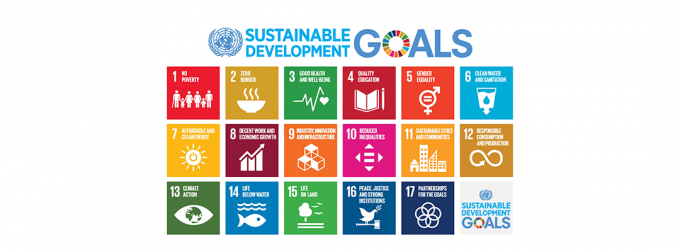Paul Polman is Chair of the International Chamber of Commerce (ICC), The B Team and Vice-Chair of the U.N. Global Compact.
You have been unwavering about the important role that business must play in tackling the environmental and social challenges of our time. What led you to this belief?
I have always believed that business can—and should—be part of the solution to the challenges we face.
Unfortunately, these challenges have become even more severe over the years. Inequality has grown, the health of the planet has suffered and basic human rights have too often been ignored.
These tragedies are not fully addressed within a free market system. The impetus for change is therefore clear. Business cannot continue “as usual” and be a bystander to a failing system.
After all, being less negative simply isn’t good enough anymore. We need to be sure that companies that want to be around long-term have a positive overall impact on society. In other words, moving from Corporate Social Responsibility (CSR), to Responsible Social Corporations (RSC).
Arriving at Unilever, I could see that the company not only had the scale and reach to make a difference, but also that it has the right value system—and desire—to be a force for change.
The Unilever Sustainable Living Plan is our response to the challenges the world faces. It represents a determined effort to decouple the company's growth from its environmental footprint and play a positive role in society's well-being.
It’s our vision for a new way of doing business—one that delivers growth by serving society and the planet—and, importantly, it is strongly aligned with the Sustainable Development Goals in a bold effort to maximise our impact.
In just a few words, why does the world need “inclusive business”?
It’s very simple. We have done far too much damage to the environment and we’ve reached our planetary boundaries:
- We’ve dumped 150 million tons of plastic in our oceans.
- We’re on track to bleach—and kill—almost every coral reef on the planet by 2050.
- We’ve devastated our rainforests through deforestation to the point where they likely won’t exist a century from now.
- We’re melting glaciers, warming oceans, thawing permafrost and killing entire species of animals.
- In fact, the living planet report by World Wildlife Fund already points at species disappearing at 1000 times the normal rate.

The U.N. Intergovernmental Panel on Climate Change (IPCC) recently warned that without “rapid and far-reaching” changes to hold climate change below 1.5 degrees, the earth‘s ecosystem will be irreversibly damaged.
We need to act now, before we reach irreversible tipping points that do permanent damage to our planet.
Gross inequality is also unacceptable and needs to be reversed. According to Oxfam, last year the poorest half of the world became 11% poorer, while billionaires' fortunes rose 12% ($900 billion)—or $2.5 billion every day.
Getting the richest 1% to pay just 0.5% extra tax on their wealth would raise more money ($418 billion) than it would cost to: educate all the 262 million children out of school and provide healthcare that would save the lives of 3.3 million people.
We need to transition to more inclusive growth.
From presentations in the board room to your interactions with the CEOs of other multinational corporations, have you encountered those who have doubted your approach to business as a force for good? How have you changed their minds?
Actually, more and more businesses are transitioning to purpose-driven brands and a multi-stakeholder model, which focus on sustainable and equitable growth.
This is because they recognise that the sustainable development agenda is the most attractive, as it promises a much higher rate of return.
I would even argue that the longer we wait to act, the more financially attractive it becomes.
At Unilever it has allowed us to be more strategic, build our reputation, reduce costs and drive innovation and growth.
In fact, acting in an ethical manner, consistent with the expectations of our customers, consumers and other stakeholders is an act of self-interest—as it makes good business sense.
It is essential for the protection of both our corporate reputation and that of our brands, which are a critical function of our company’s value.
And our purpose-driven brands are our strongest brands. They also happen to be among the fastest growing brands in the company.
At the same time, this approach to business helps us attract and retain talent. Every year almost 2 million people apply to join our company.
So, it is the only way of doing business if you want to deliver long-term, sustainable growth.
What advice would you give to entrepreneurs and intrapreneurs who want to successfully make a pitch for “inclusive business” to their investors, customers, or senior leadership, for example?
I would recommend pointing to the growing body of evidence, and specific company examples, that prove a multi-stakeholder business model works.
Society is no longer willing to tolerate the idea that businesses are run in the interests of shareholders, or a small group of billionaires.
Businesses thrive when they serve all their stakeholders: citizens, employees, suppliers, partners and those who make up the extended value chain. At Unilever, we also include ‘the planet’ as one of our stakeholders.
When you make your business relevant to the needs of the communities and societies you serve, then everyone benefits.
And yes, ultimately, it’s good for investors as well. Look at Unilever. We’ve delivered a total return to our shareholders over the last ten years of close to 300% and a 19% return on invested capital.
You were one of 27 members of the panel to design the United Nations Sustainable Development Goals. Are we on track to achieve them? What do we need to be successful?
It is estimated that we need between $3-4 trillion to meet SDGs.
Unfortunately, according to the Word Bank, we have a funding gap of around $2.4 trillion, so urgent investment and action is needed now more than ever. That’s why the business community needs to be committed to this agenda.

Perhaps most significantly, to be successful, we need to build true collaborations and partnerships to solve these challenges.
It’s all about building movements for positive social and environmental change. It’s time to aggregate the many initiatives to build real momentum.
It requires deep trust and partnerships that focus on putting the interest of others ahead of your own and thinking inter-generationally.
Indeed, the famous saying is true: “It’s amazing what you can accomplish if you don’t care who gets the credit.”
For my part, I will continue to fight for the underprivileged and where possible try to achieve impact and scale. We cannot stop until we truly leave no one behind.
My best contribution is in galvanising the private sector faster and making not only the moral case but also the economic one. That’s why I became Chair of the ICC, B Team and Vice Chair of the U.N. Global Compact.
Over 45 million companies are associated with the ICC. What a tremendous opportunity it would be if we could develop a new social contract and focus on climate change and inequality.